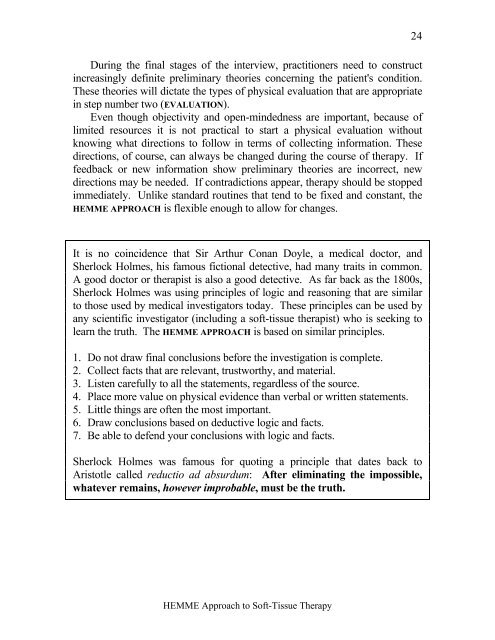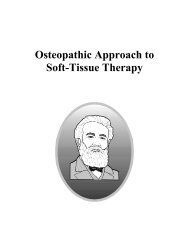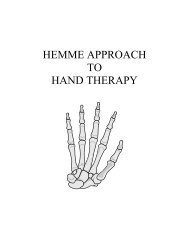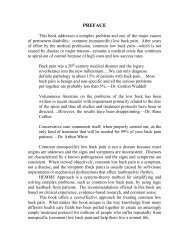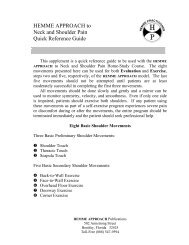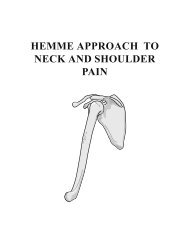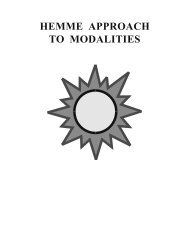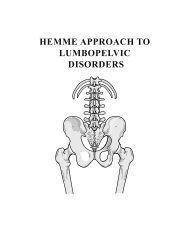HEMME APPROACH TO SOFT-TISSUE THERAPY
HEMME APPROACH TO SOFT-TISSUE THERAPY
HEMME APPROACH TO SOFT-TISSUE THERAPY
Create successful ePaper yourself
Turn your PDF publications into a flip-book with our unique Google optimized e-Paper software.
During the final stages of the interview, practitioners need to construct<br />
increasingly definite preliminary theories concerning the patient's condition.<br />
These theories will dictate the types of physical evaluation that are appropriate<br />
in step number two (EVALUATION).<br />
Even though objectivity and open-mindedness are important, because of<br />
limited resources it is not practical to start a physical evaluation without<br />
knowing what directions to follow in terms of collecting information. These<br />
directions, of course, can always be changed during the course of therapy. If<br />
feedback or new information show preliminary theories are incorrect, new<br />
directions may be needed. If contradictions appear, therapy should be stopped<br />
immediately. Unlike standard routines that tend to be fixed and constant, the<br />
<strong>HEMME</strong> <strong>APPROACH</strong> is flexible enough to allow for changes.<br />
24<br />
It is no coincidence that Sir Arthur Conan Doyle, a medical doctor, and<br />
Sherlock Holmes, his famous fictional detective, had many traits in common.<br />
A good doctor or therapist is also a good detective. As far back as the 1800s,<br />
Sherlock Holmes was using principles of logic and reasoning that are similar<br />
to those used by medical investigators today. These principles can be used by<br />
any scientific investigator (including a soft-tissue therapist) who is seeking to<br />
learn the truth. The <strong>HEMME</strong> <strong>APPROACH</strong> is based on similar principles.<br />
1. Do not draw final conclusions before the investigation is complete.<br />
2. Collect facts that are relevant, trustworthy, and material.<br />
3. Listen carefully to all the statements, regardless of the source.<br />
4. Place more value on physical evidence than verbal or written statements.<br />
5. Little things are often the most important.<br />
6. Draw conclusions based on deductive logic and facts.<br />
7. Be able to defend your conclusions with logic and facts.<br />
Sherlock Holmes was famous for quoting a principle that dates back to<br />
Aristotle called reductio ad absurdum: After eliminating the impossible,<br />
whatever remains, however improbable, must be the truth.<br />
<strong>HEMME</strong> Approach to Soft-Tissue Therapy


